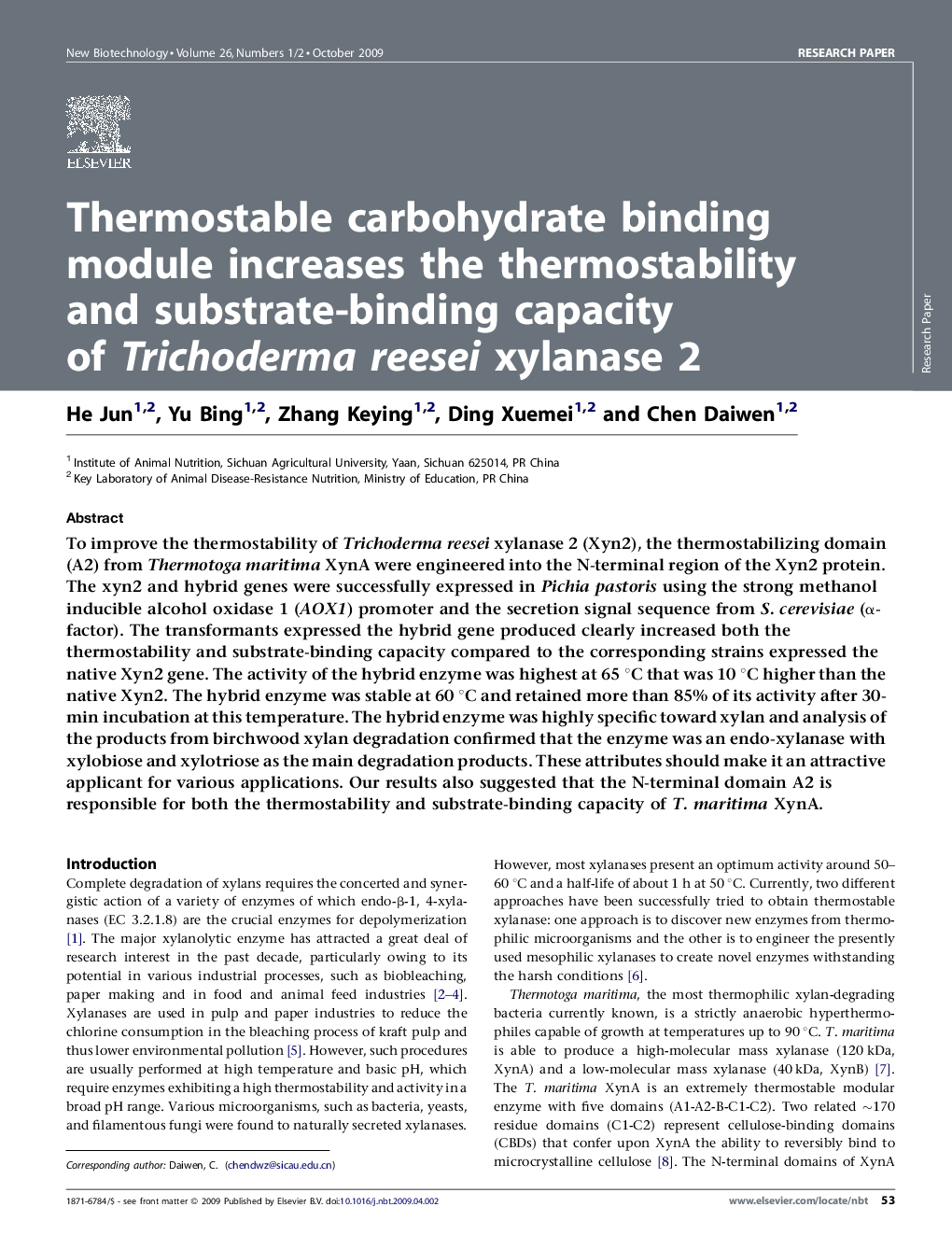| Article ID | Journal | Published Year | Pages | File Type |
|---|---|---|---|---|
| 33904 | New Biotechnology | 2009 | 7 Pages |
To improve the thermostability of Trichoderma reesei xylanase 2 (Xyn2), the thermostabilizing domain (A2) from Thermotoga maritima XynA were engineered into the N-terminal region of the Xyn2 protein. The xyn2 and hybrid genes were successfully expressed in Pichia pastoris using the strong methanol inducible alcohol oxidase 1 (AOX1) promoter and the secretion signal sequence from S. cerevisiae (α-factor). The transformants expressed the hybrid gene produced clearly increased both the thermostability and substrate-binding capacity compared to the corresponding strains expressed the native Xyn2 gene. The activity of the hybrid enzyme was highest at 65 °C that was 10 °C higher than the native Xyn2. The hybrid enzyme was stable at 60 °C and retained more than 85% of its activity after 30-min incubation at this temperature. The hybrid enzyme was highly specific toward xylan and analysis of the products from birchwood xylan degradation confirmed that the enzyme was an endo-xylanase with xylobiose and xylotriose as the main degradation products. These attributes should make it an attractive applicant for various applications. Our results also suggested that the N-terminal domain A2 is responsible for both the thermostability and substrate-binding capacity of T. maritima XynA.
